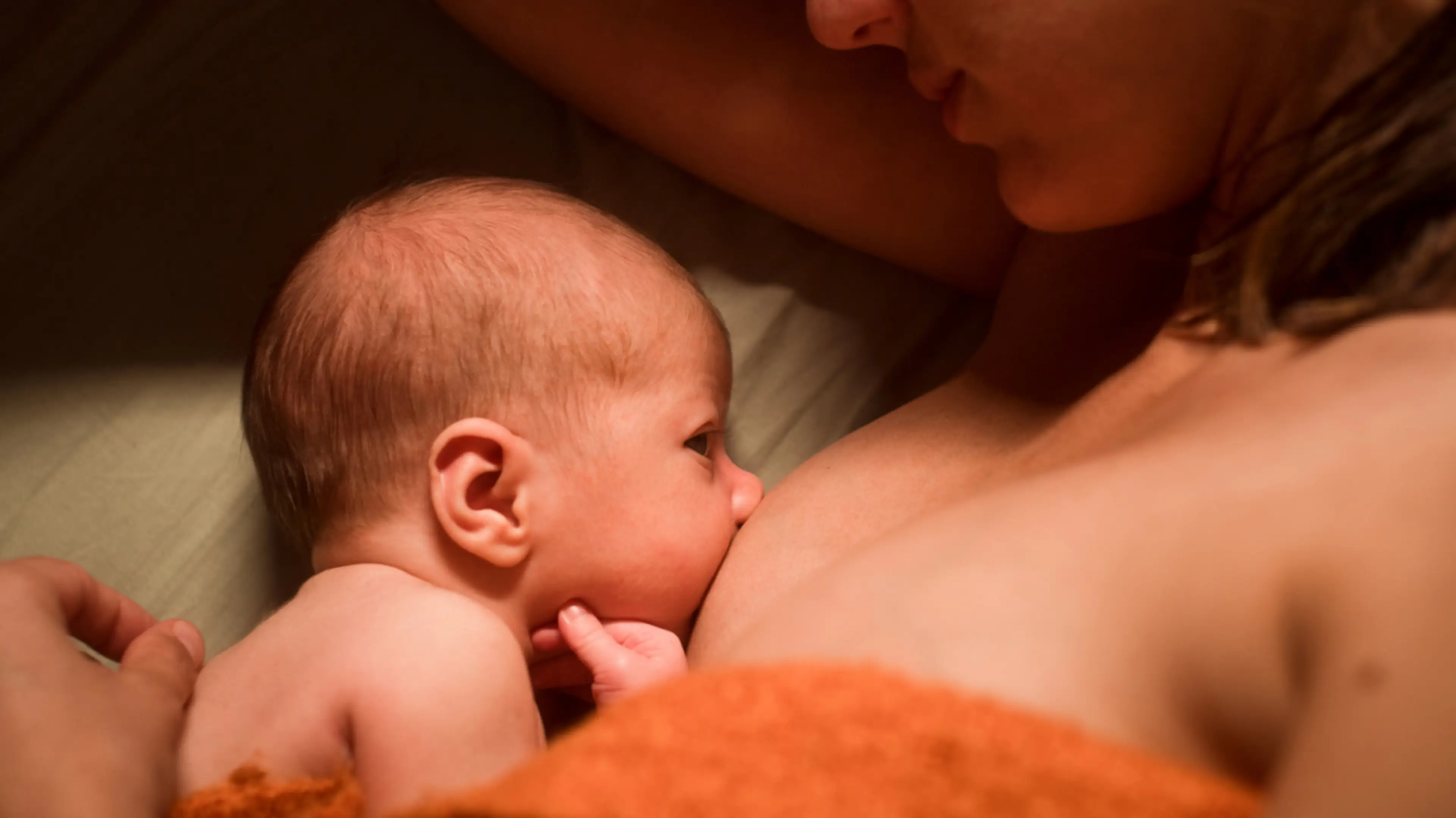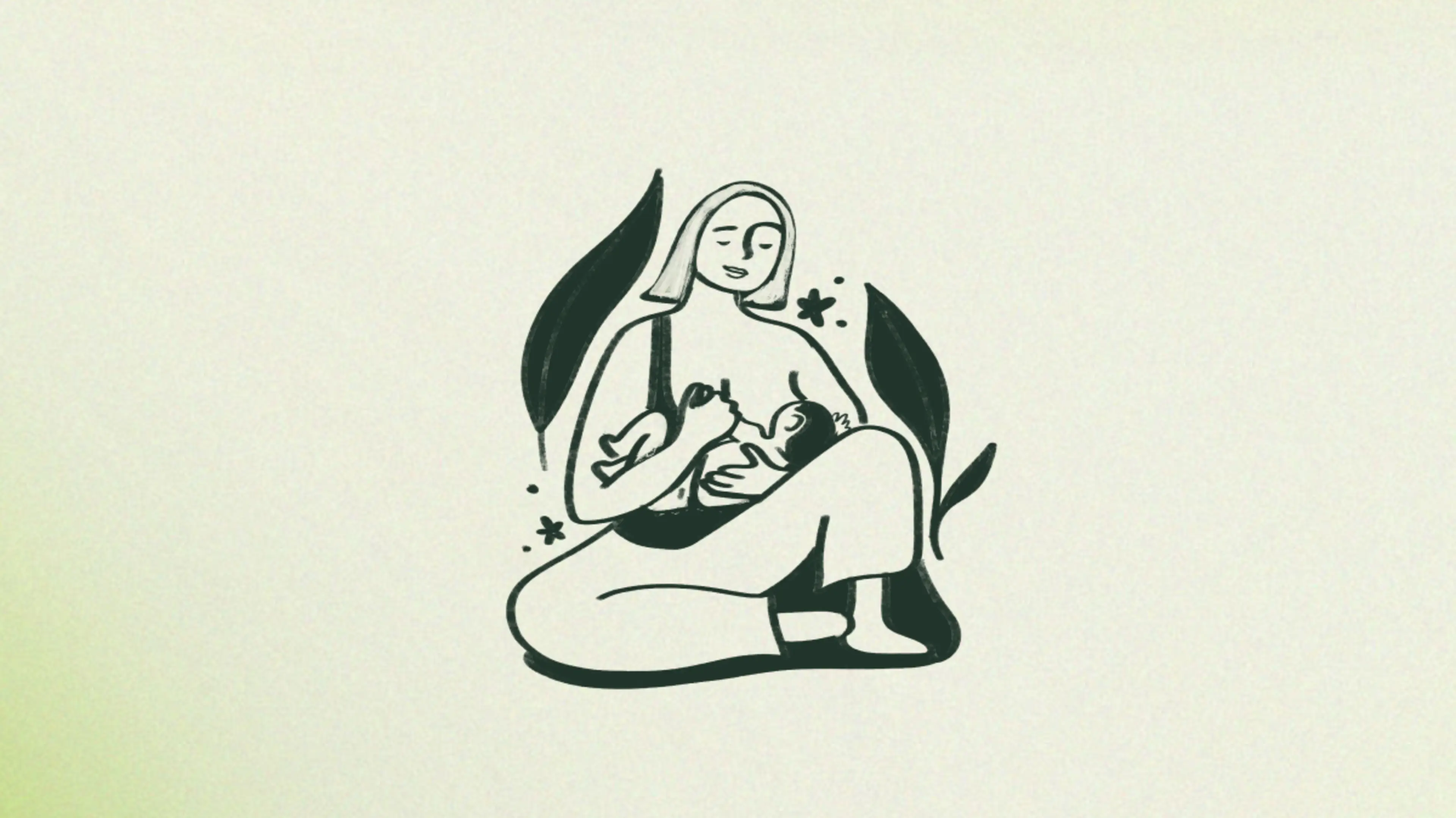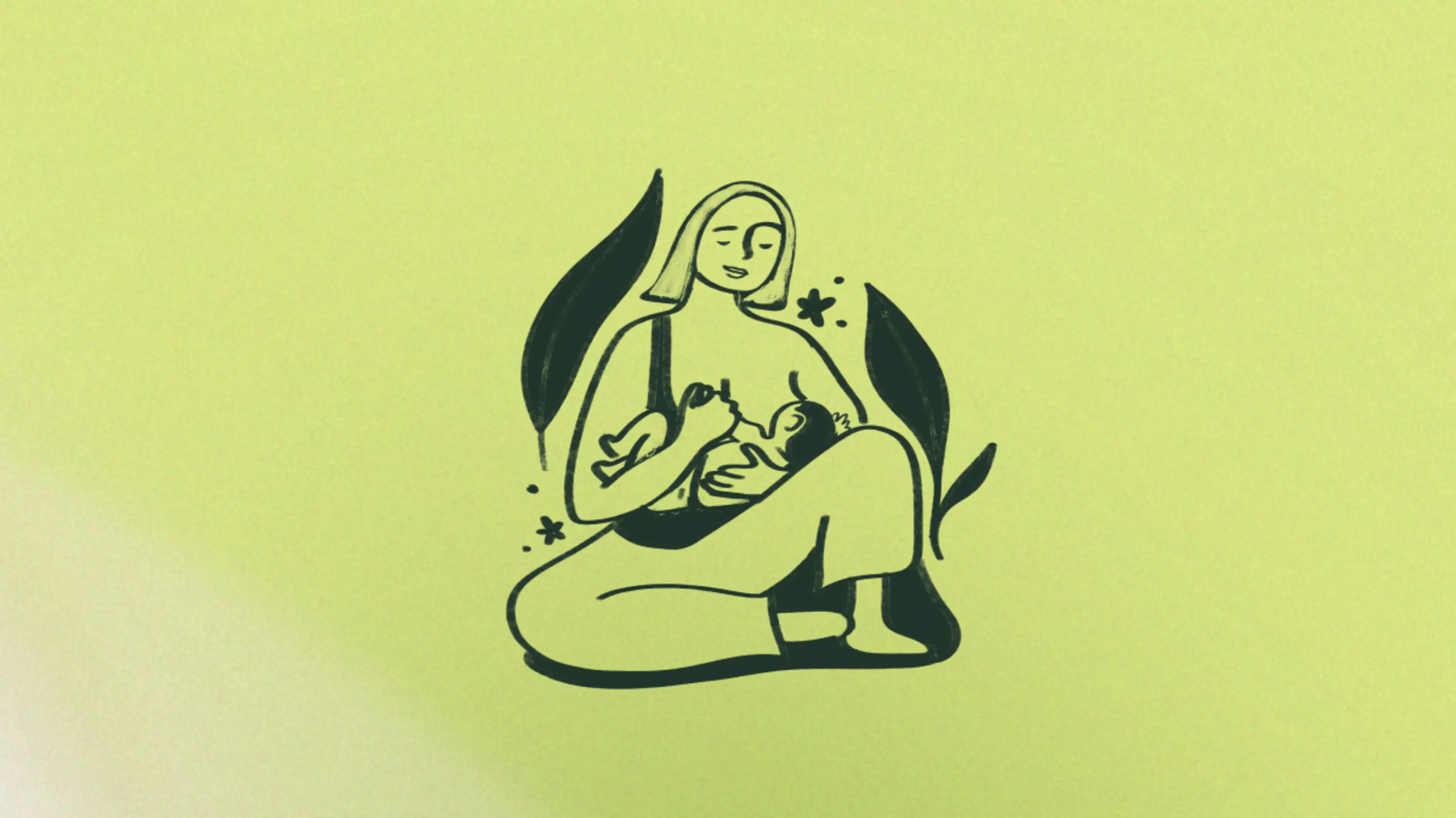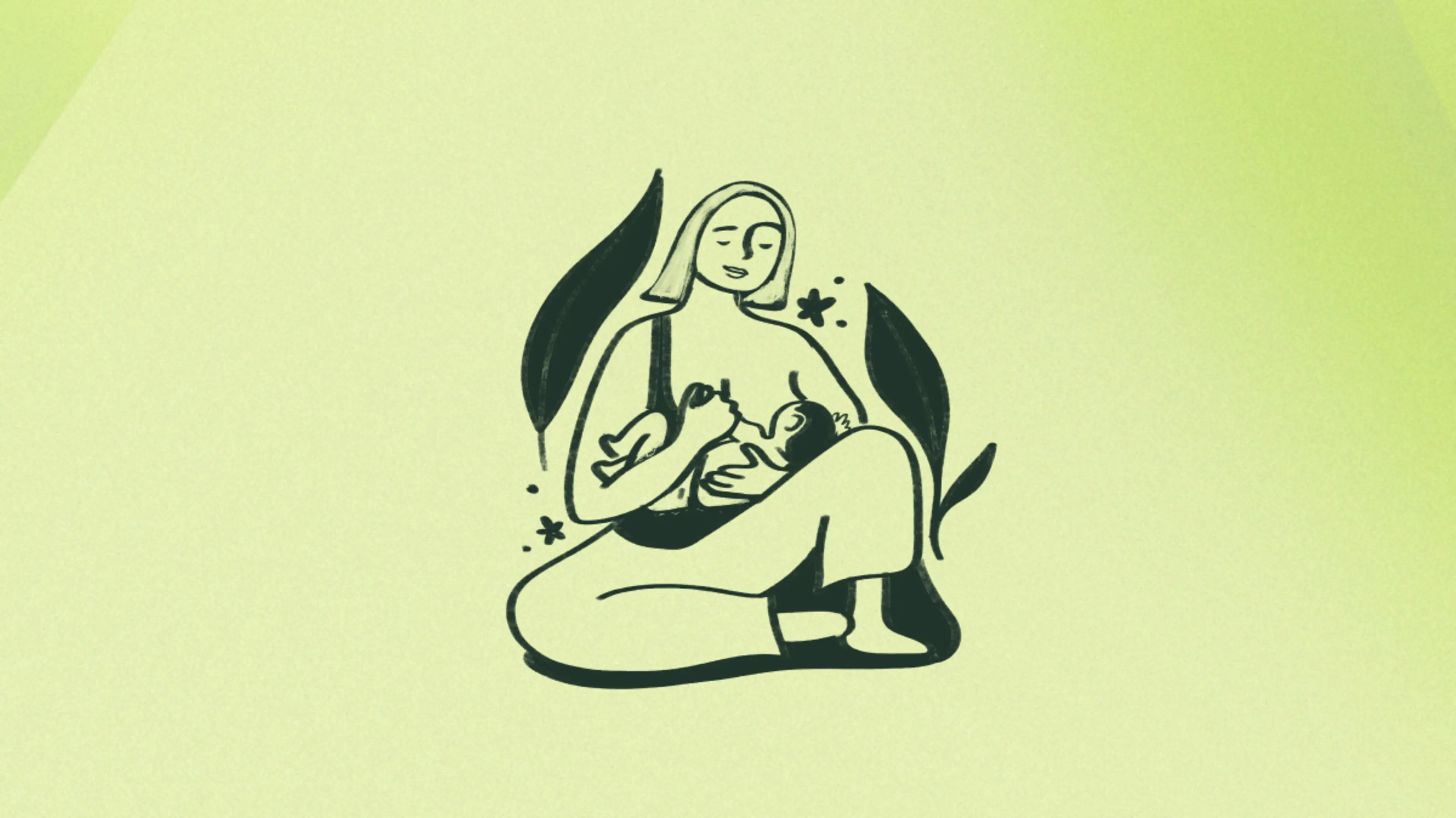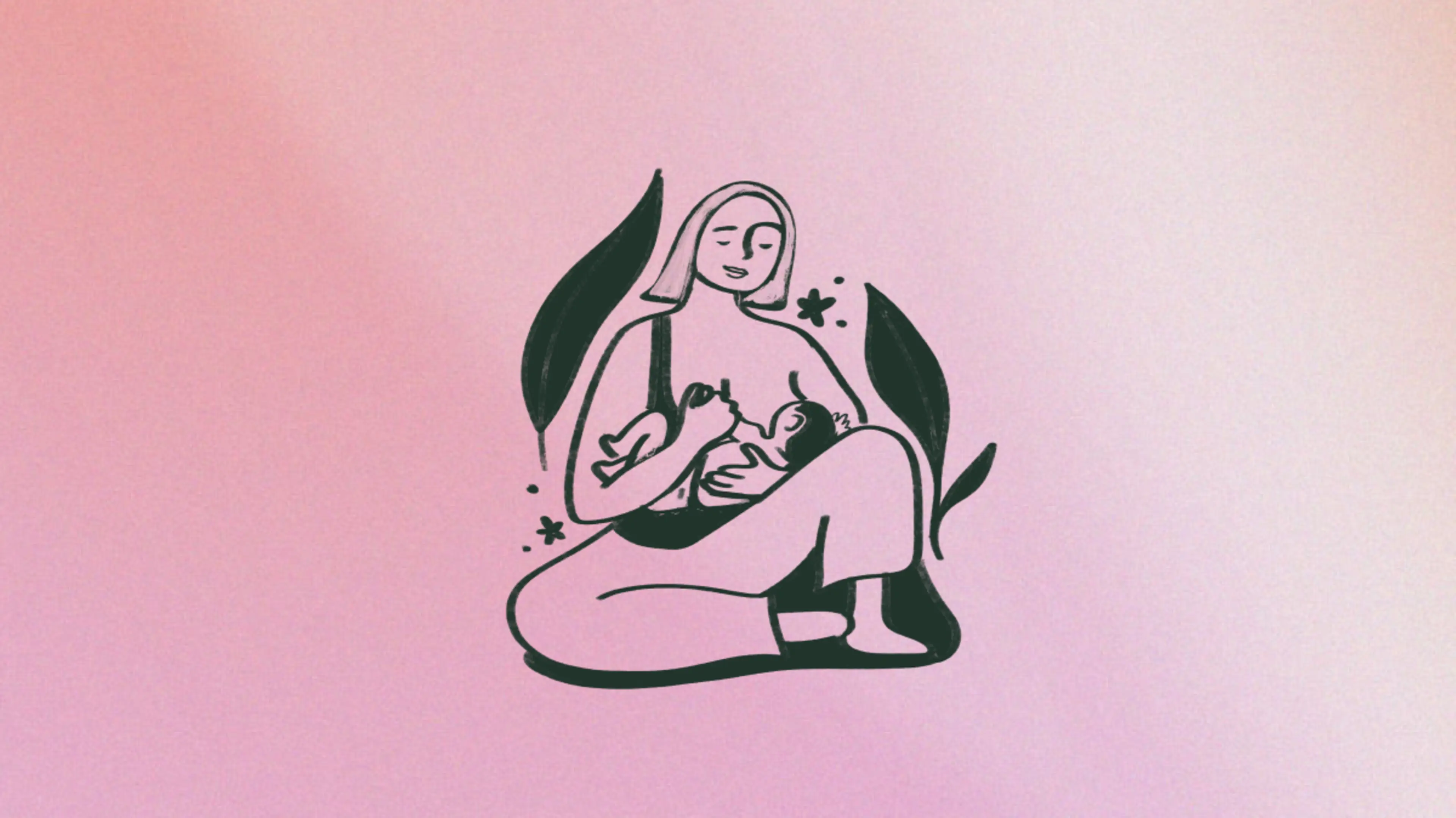TLDR: There are certain foods that a person who is breastfeeding might want to avoid. This article lists the major categories that you should think twice about and why that food should be reduced or skipped while breastfeeding. If you think your baby has an allergy or is reacting to a food you’re eating, read on!
If you decide to breastfeed—and are able to do so—there are lots of things you’ll learn along the way, like the letdown, latching, milk supply, and more. Getting into the groove of breastfeeding can feel a bit overwhelming at first, and the food you eat can actually cause some challenges—there are also some foods you may want to avoid entirely while breastfeeding.
Read on to learn which foods you may want to reduce or eliminate, plus a breakdown of the reasons you may want to avoid these foods. We even have tips for how you can replace some of them.
How Nutrients Get Into Breast Milk
When you consume food and drinks, or even medication, your digestive tract breaks it down into tiny molecules. These molecules are absorbed into the blood, which flows to the mammary alveoli—the place in your body where breast milk production and storage happens.
Breast milk then travels through the milk ducts and out through the nipple. Your baby won’t be getting the same exact food you eat, but they will get the same nutrients from those foods.
Even though your baby isn’t eating what you eat, some of the molecules that break down from the food may bother them. Certain foods may cause gas, fussiness, and even skin rashes. Other foods may be so strong in flavor that they change the taste of breast milk.
Why Certain Foods Should Be Avoided
Some foods, like certain fish, aren’t safe to eat in high quantities, and those should be limited while you’re breastfeeding. But for other foods, paying attention to how your baby reacts to them can help you decide whether to restrict them. If eating certain foods causes your baby to react negatively—like getting a gassy tummy, becoming colicky, or developing a diaper or skin rash—you may want to stop eating that food temporarily and see if the conditions improve.
To find out what foods may be bothering your baby, one option is to try an elimination diet. This takes certain foods, like some of the ones mentioned below, out of your diet.
First, remove one food that might be aggravating your baby and wait about two weeks to see if they continue to experience the same issues. If it stops, great! You know what to avoid. If the food you eliminated made no difference, try eliminating another food.
The Top Foods to Avoid While Breastfeeding:
Fish high in mercury
Fish that’s high in mercury1 is one of the most important foods to avoid while breastfeeding. Predatory fish like shark, swordfish, king mackerel, and tilefish all fall under this category. High levels of mercury can cause harm to the neurological system2 , immune system, heart, and kidneys.
When you’re breastfeeding, you don’t have to cut fish out of your diet altogether. In fact, fish, specifically fatty fish, can provide your baby with omega-3 fatty acids. These omega-3 fatty acids help support neurological development in infants3 .
Salmon, anchovies, herring, trout, sardines, and albacore tuna provide the benefits of omega-3s without high levels of mercury. The FDA recommends eating 8-12 oz a week of these kinds of fish4 when you’re pregnant or breastfeeding.
Alcohol
You may have heard this term when it comes to alcohol and breastfeeding:“pump and dump.” (This is when you pump and then dump your milk after a drink.) Women who are breastfeeding don’t have to eliminate alcohol completely, but should limit it. The amount of alcohol in your breast milk after drinking is about the same as your blood alcohol level.
That being said, one or two drinks may be safe to consume, but it may be safest to have a drink after your baby is finished nursing or wait two or three hours after drinking to nurse again. Alcohol may also reduce your milk supply temporarily or change the taste of your milk, which your baby may be unhappy about.
Caffeine
If you need that cup of coffee in the morning, go for it. The recommended max amount of caffeine in a day is 300 mg5 for someone who’s breastfeeding, and the average cup is about 100 mg. High levels of caffeine can cause jitteriness in babies, but this usually stops when you stop drinking caffeine before nursing.
Oh, and remember, caffeine is in more than just coffee. Some teas, soda, and chocolate contain caffeine. Don’t forget to include these in your total caffeine count.
Pro-tip: If you want to remove caffeine from your diet while breastfeeding but still keep up your energy, there are other ways to get a boost. Staying hydrated, exercising and eating foods like walnuts, oatmeal, eggs, and berries can provide you with extra energy without the caffeine.
Certain herbs
If you’re concerned about your milk supply, pay attention to the herbs you’re consuming. Herbs like sage, peppermint, and parsley can all cause your milk supply to drop12 .
If you occasionally add sage or parsley to your dishes, or have peppermint tea every now and then, you shouldn’t have any issues. Just try to avoid over-consuming them or having them every day. If your supply seems low, try eliminating these herbs altogether, just in case.
You can still get flavor in your food by trying different herbs and spices. You might even create a new favorite flavor combination!
Highly-processed foods
You may feel like you need to maintain a strict diet to give your baby all the nutrients they need. While you don’t have to be perfect, try to eat a well-balanced diet, since the foods you consume contribute to the nutritional content of your breast milk. If you happen to be deficient in certain nutrients6 , they may not be able to pass through your breast milk.
That said, you should try to avoid eating a lot of highly processed foods. Some studies show that babies of mothers who eat a lot of these types of food while they breastfed may crave fatty, sugary, or salty food over nutritionally dense food7 as they get older. They may also have increased body weight.
This doesn’t mean you can’t or shouldn’t eat Cheetos or fries here and there, but try to incorporate more whole foods, and keep moderation in mind.
Dairy
Some babies react perfectly fine to certain foods, while little ones have an allergy to them. Dairy products are the most common foods that cause allergic reactions8 . Dairy allergies affect 0.5% to 1%9 of breastfed babies. Signs of a dairy allergy may include gas, bloody stools, and fussiness.
If you suspect your baby has a dairy allergy, eliminate milk (including cheese and yogurt) from your diet. It takes about 72 hours for the dairy to clear the breast milk10 . If you have to cut out dairy from your diet, make sure to get your calcium from other places, like leafy green veggies.
The good news is kids often outgrow dairy allergies by the time they reach age five. Some children will continue having a dairy allergy through adulthood, but it’s not that common. Work with your child’s pediatrician to find the safest way to add dairy back into their diet.
Strong flavors
Some babies are more susceptible than others to strong flavors (think garlic, asparagus, or spicy peppers). If your baby gets fussy or refuses milk any time you have an especially flavorful meal, you may want to incorporate those flavors a little less. Try adding them back slowly, gradually adding more. This may allow your baby to get used to these flavors.
If your baby seems to tolerate a highly garlicky or super-spicy meal, carry on!
Gas-causing foods
You may notice that after you eat certain foods, your baby gets a little extra gassy. Some babies even get severe gas pains and become fussy or colicky. In this case, try removing these foods from your diet to see if it helps relieve their gas. Some foods that can cause excess gas 11 include broccoli, Brussels sprouts, cabbage, and beans.
Learning which foods to avoid while breastfeeding depends a lot on your baby’s sensitivity levels to them. While there are certain foods you should always avoid—like fish high in mercury—others are okay if they don’t cause your baby to have an upset stomach or other adverse reactions.

